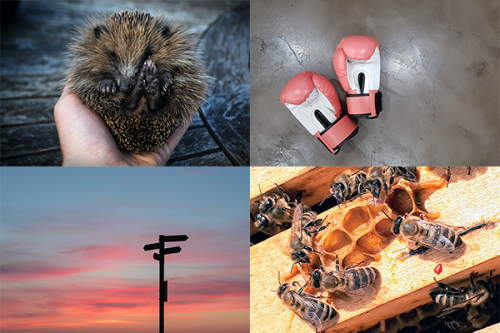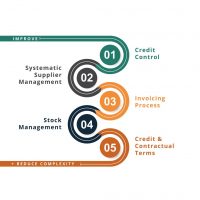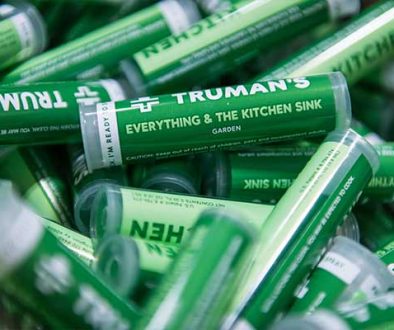COVID – 19: Your business response to the crisis?
What has it been and How will this impact life after lockdown?

COVID – 19. What has been your business response to this unique event? We all respond differently in a crisis. We are hardwired that way. That is what our ‘fight or flight’ mechanism tells us to do. Just as we have all had different responses, business responses have been different too. While we may all be in the same COVID-19 storm, we are on quite different boats, and the experience of one person or of one business is very different to that of the next.
Overall, there have been 4 types of business response:
- Hibernate until it is all over
- Fight for survival
- Change direction
- Cope with increased demand
While some businesses have had the luxury of choice of how to react, others have had their choices taken away by the very nature of their industry. Whichever response (or responses!) your business has taken will affect your business model. How we have responded will shape what happens next and how ready we are for business after lockdown.
Hibernating Hedgehogs
The first business response has been to hibernate, to shut up shop, to mothball, in the hope that when the storm blows over, we can wake up, unpack, and carry on.
Companies in the travel industry such as hotels, cruise liners and agencies. Those in the entertainment industry such as bars, cinemas, bowling venues, gyms. Those who rely on personal contact such as beauticians, eye surgeons and physiotherapists. These are just some examples of those who have been forced to hibernate.
These businesses have had little choice, especially when lockdown rules have dictated that their businesses should stop serving the public.
It may not be the whole business that has to hibernate. It may just be a part, whether large or small. A leading alcoholic drinks company has 75% of its staff on furlough. It is hoping that by putting the areas of the business that can’t work into hibernation, it can cut down on costs in the short term to survive in the long term.
Survive
None of these businesses want to stop work but they are doing it for the long term survival of their business. These businesses have looked at their business model, understood that their costs are higher than their incomes and have done what they can to keep their cash position as positive as possible. They are doing what they can to survive until the storm has passed.
Thrive
However, the best of these businesses are not sitting at home twiddling their thumbs but are planning, developing, studying how they have been doing business and how they can improve. They are looking at all areas of their operations, communications, and products to make sure that they come out of this situation in a better position. What are you going to do differently? Look at your business model now. Can you come out of hibernation in a better position? How can you plan to thrive after lockdown?
Survival of the fittest
If you have not had to shut up shop completely, there are those that are fighting to survive. They are jostling for position and doing what is needed to keep business coming in. There are many types of business in this category. This is not about simply surviving but about becoming more relevant to your consumer and fighting for their attention and spend.
The companies that are doing best at this are those that are revisiting the consumer need; what does the consumer need to do? What problem are you solving? And, more importantly, how? They are then looking at the how to make sure that they can meet that need better than their rivals. This is clearly relevant now, but also will be just as relevant to succeed afterwards.
Filling a need
There is a local mobile Wood Fired Pizza company in our town who started off their business response in hibernation. However, they saw that people still wanted takeaways (even though we have all been doing more cooking from scratch, who doesn’t need a break). They were confident that they had an excellent product (and they really do) that satisfied the need. So, they looked at how they could meet that need in the new environment. A texting pre-order system and advertising on social media as to which residential roads they would visit when, and they were back up and running. They are competing with other takeaways and other food providers. By coming to the people’s streets, making it safe to order and collect and supplying a quality product, they are still in business and getting their share of spend. They have found a new type of consumer and have raised their brand awareness. This will stand them in great stead for after the restrictions have eased.
Beating the competition
There are also businesses who are suddenly experiencing increased competition. Online learning providers for example who are suddenly finding themselves in a positive situation of having more consumer need. However, there is also more competition, especially from new entrants who have seen the need and are trying to fulfil it. So how can you stand out from the crowd? How can you capture this new audience and put plans in place to keep them even after lockdown? The answer remains with the consumer and finding your own competitive advantage. Target your consumer, fill their need better or differently compared to others and make sure your consumers know about you. Be visible and engaging.
Take a different path
While there are those that are trying to find more business in their existing forms, others are adapting what they do. They are changing the focus, using their skills in differently to fill a need and create new business. Their business response is not to give up in a crisis but to innovate.
These are not little tweaks to make your business work better but a real shift in what you do and how you do it. While COVID-19 has certainly created problems, it has also created opportunities. There are companies that are embracing these opportunities either temporarily or on a permanent basis. Many businesses have responded by changing what they do purely as a means of survival during this time, but these new ways could prove to be just as effective after lockdown. They may provide significant opportunities that either were not even thought of or not yet explored. Look at the changes you have made. Should they be permanent? Are there more improvements to make? Or more revenues streams to explore?
Making the change for good
There are many fantastic examples of businesses pivoting or changing direction. One of the most popular changes is to provide online options for ordering that did not previously exist. Many have had to quickly learn how to and build eCommerce sites from scratch and launch online. The founder of the ethical clothing company Found Hea has not only done just that but has also looked to his purpose. He realised how fortunate he is compared to the impact on many garment workers, so he is also donating 10% of sales to a charity supporting them. While making changes to your business, it is still important to remain constant to your purpose and the heart of your company. Show your consumers and your staff what matters most and what type of company you really are, even in crisis. Your consumers will notice how you have responded, and their shopping behaviour will reflect this.
Busy Bees
For some businesses, their response has had to be quite different. For these are businesses that have seen demand surge. Their goods and services are more in demand than ever before. Businesses that have not changed their business model as such except to try to accommodate the increases asked of them. Some have been successful and others not so much. Whilst some of this success or not is perhaps due to luck, it is also due to business model set up and how ready it is to scale or to adapt.
Lost sales
Did you know that in the UK there are only 2 factories that manufacture recycled toilet paper? While demand has surged, they have had to adjust to employee safety concerns and lower than standard staff levels. This unfortunately resulted in large delays in production and lost sales. Nonetheless, they are still busy and are doing all they can to rectify the situation and hold onto new customers that they have gained. In situations like this, it is important to evaluate what went well, what didn’t, and what could be improved. Be honest with yourselves, your staff, your customers and find solutions that make your business stronger.
Gained sales
In a recent statement from Hannah Shipton, Managing Director at Abel and Cole, the organic food delivery company, she has outlined what they have had to go through to try to cope with unprecedented levels of demand. Her team have had to work different hours, take on new tasks, work in different ways. It takes a true leader to be able to inspire a team to work so hard for the cause, for each other. It is also a mark of a great leader who recognises that effort and does what they can to acknowledge and thank all those who continue to work so hard.
For Abel & Cole the key has been to have a clear goal in mind; to get as much food to as many customers as possible. There has been a key focus on team members to think creatively about what and how they can change. Then more importantly, how to implement the changes so they can be more efficient and keep people safe all in a period of record demand.
Your Business Response?
Of course, classifications are all very well but very few businesses will fit completely into one neat box and nor should they. In fact, in a survey, most businesses found they were a combination of the 4 business responses, either at the same time or progressively as the lockdown has continued.
The point here is that every company is different and whilst we can all take inspiration from each other, there is no rule. We must do what is best for our circumstances, for our consumers. One vital lesson from downturns in the past, is that companies that are proactive, and who are willing to be honest about and work on weaknesses, will have an edge coming out of the crisis.
Focus on your consumer and your business model, keep adapting and look for opportunities to improve both for now and for the new future.
About the Author

Anna Taylor is a consultant at Emerson Nash, a consultancy specialising in Business Performance Management for product-based businesses. Anna and the team run business model design workshops and testing programmes to maximise your business opportunities and ensure that you are set up for growth.
Call us on 0203 500 1200 to discuss any questions or informational challenges you may have
Download our Guide to improve your cash:
6 Must Do Steps to Increase Cash
Help to Find Hidden Cash in Your Business:
Release additional cash quickly






